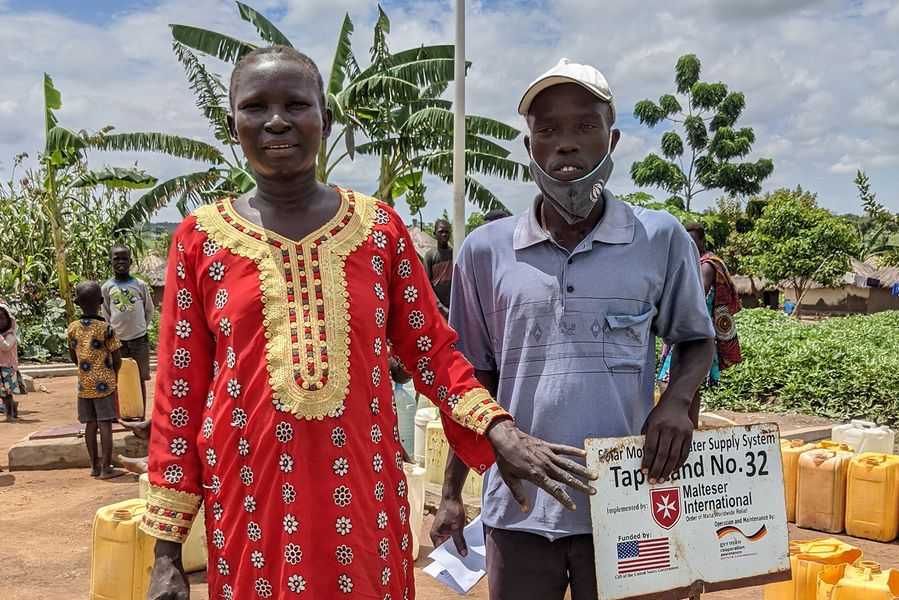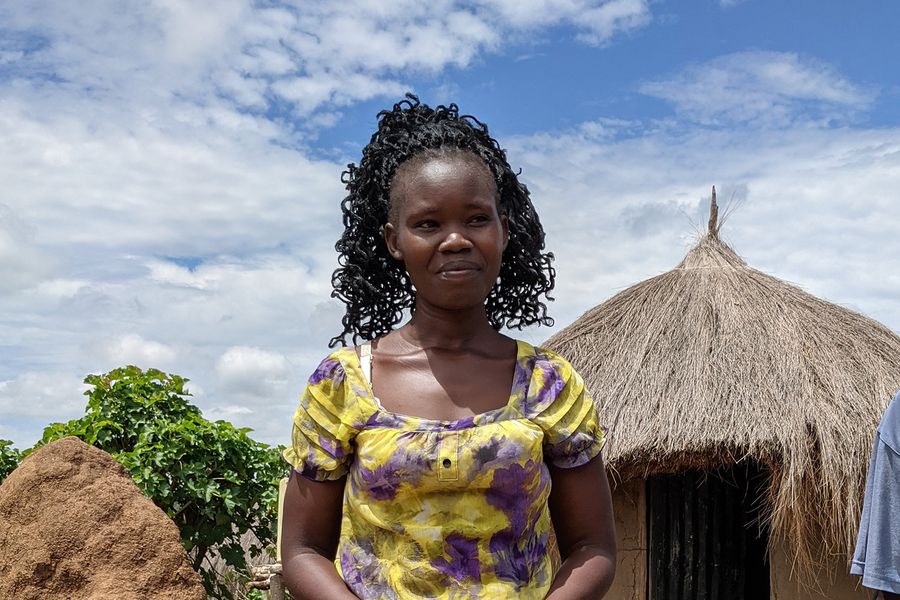
#MomentsOfHome: When war destroys home - Safety becomes the new home

"Yes, I feel at home here in Uganda. Despite the challenges I face in my daily life. I am doing well and most importantly I feel safe. Peace makes it easy for me to feel at home, even though I am far away from home." says Mary Night.
Mary Night, 38, fled from South Sudan to Uganda eight years ago. Now that she lives in Uganda, she finally feels safe - a feeling she never knew in South Sudan. She has a job. She cultivates a small garden, and from the yields she is able to finance her life. Mary Night doesn‘t take that for granted the possibility of being able to pursue simple everyday activities. This alone gives her a sense of home. "I have water here that I can use to cultivate my garden, which in turn I can use to make a living and also support myself. I didn't have that before. Even though I do miss home sometimes," Mary Night says.
"What really hurts me is that my country is not at peace."

"In South Sudan, everything was different – it wasn’t good. When we arrived in Uganda we suddenly had a feeling of security. Yes, it does make me feel at home. What really hurts me is that my country is not at peace," says Tumalu Beatrice.
Tumalu Beatrice, a young Sudanese woman, fled South Sudan with her husband and lives now in Uganda. There, they farm a small area of land. This gives them great security and, among other things, finances the family's livelihood. Even though the weather is very challenging for agriculture, says Tumalu Beatrice, they are both happy to now have a secure access to water and thus also to food. This was not possible in their home country.
"The moment I arrived in Uganda, I directly got medical help and support from Malteser International. We are connected to a steady water supply and can get water at any time. That helped me feel at home."
Background on the flight from South Sudan
Since 2013 a civil war has been raging in South Sudan, causing around four million people to flee because of violence. Mary Night and Tumalu Beatrice are two of them. Their experiences are representative of over four million South Sudanese who have had to flee. Many homes in South Sudan have been destroyed and the plight of the people is unimaginable. In many regions, there is insufficient water supply and poor to no infrastructure.
More than half of the population does not know what to eat the next day. As of March 2021, nearly six million South Sudanese are suffering from acute food insecurity. Elderly people and people with disabilities have to live in huts with leaky roofs where they are unable to provide for themselves. Poverty is devastating. Uganda is one of three bordering countries hosting refugees from South Sudan. In addition, the country is continuosly struggeling under the ongoing COVID-19 pandemic. Which also counts for the surrounding countries, such as Uganda, and poses further challenges to hosting refugees from South Sudan.
Malteser International works in the areas of nutrition, water, sanitation and hygiene (WASH), as well as health in the field with the aim of a long-term improvement for the people’s livelihoods.








